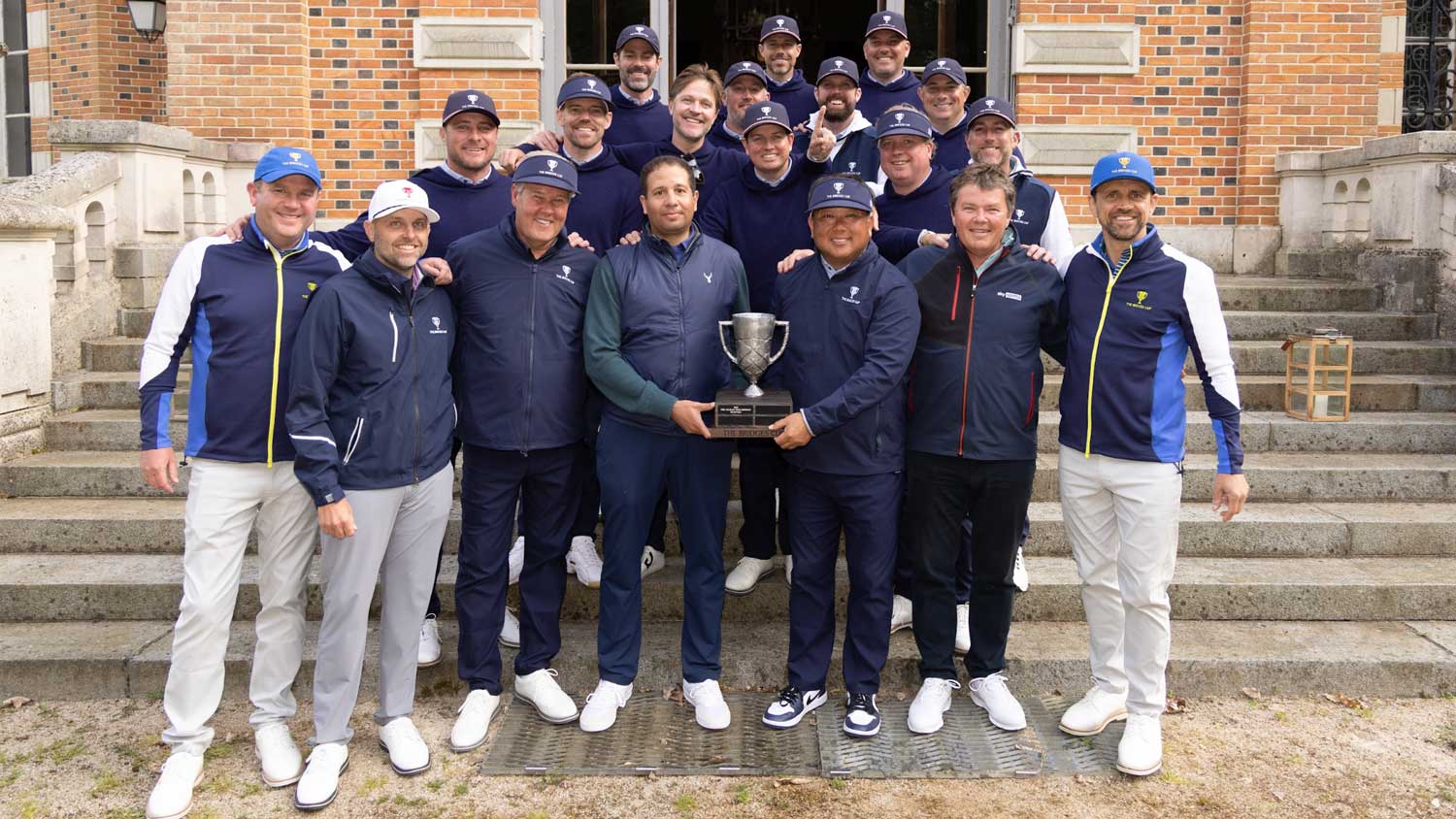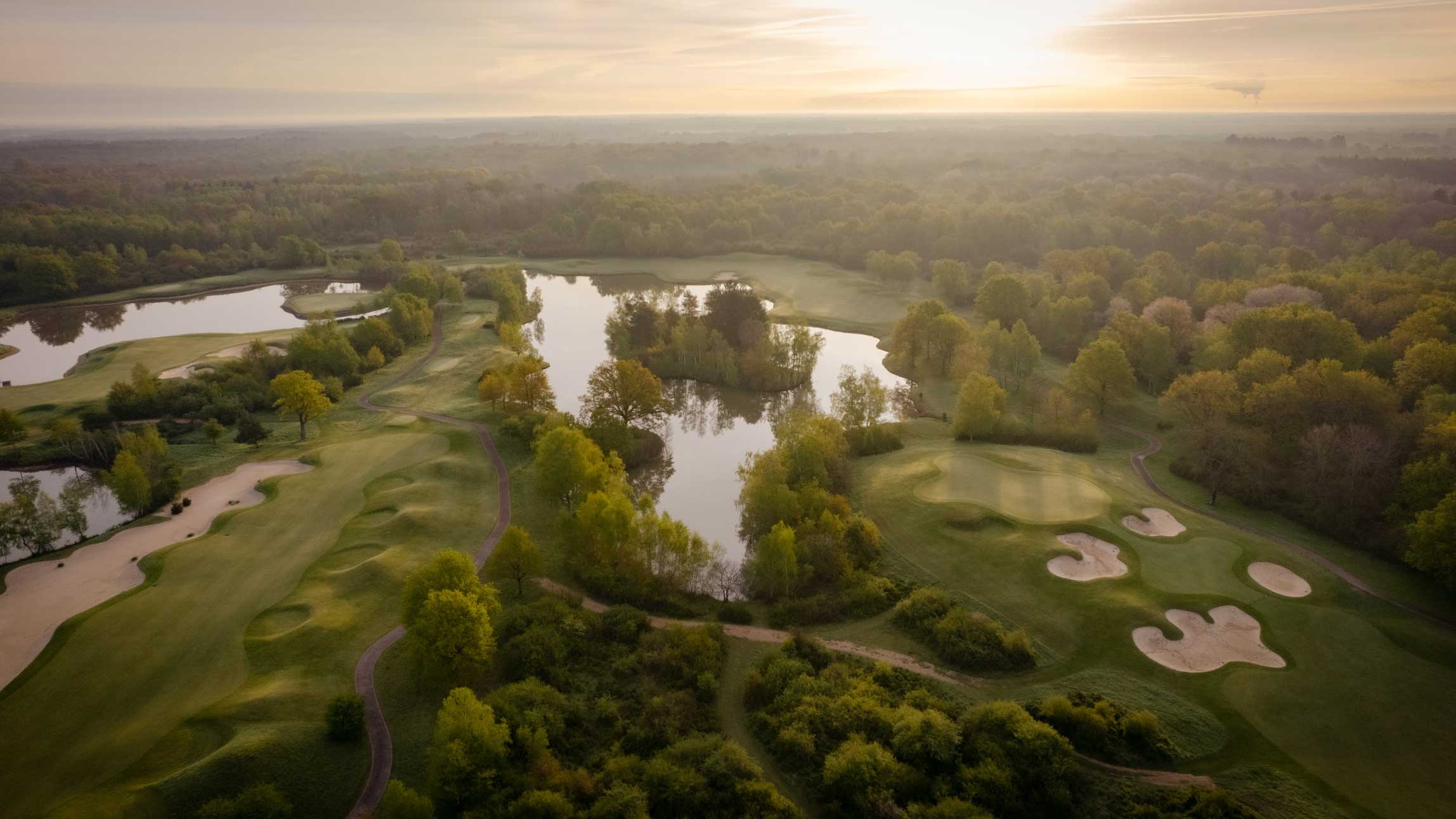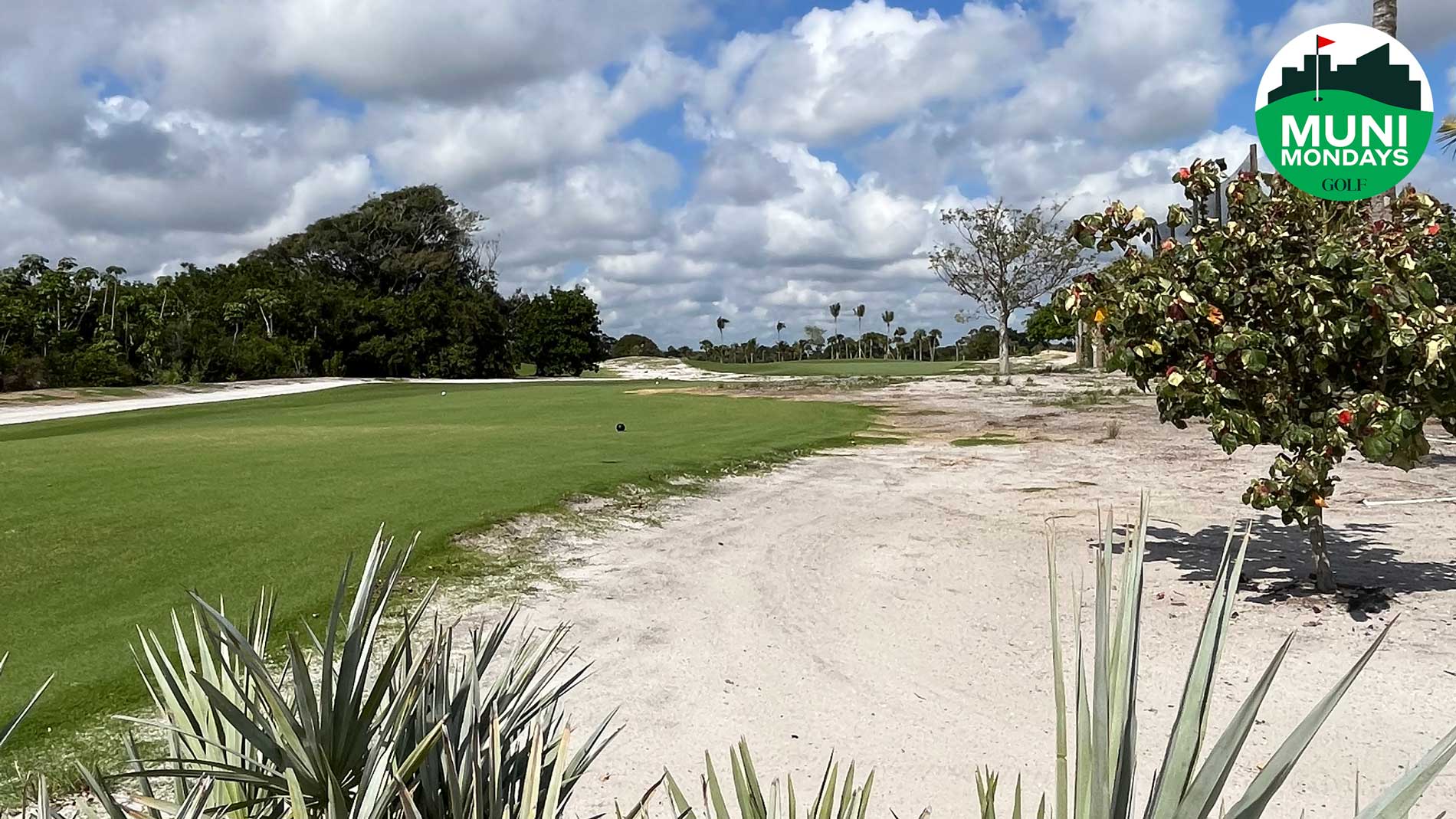
The victorious U.S. side.
Oisín Keniry
SAINT-LAURENT-NOUAN, France — It’s interesting to watch an event grow from one year to the next.
When I touched down in South Korea last October, I didn’t know what to expect during the first-ever Bridges Cup. What it delivered was spirited vibes and an impeccable host venue in Nine Bridges Golf Club. This year, for the second iteration of the Bridges Cup, those two qualities remained the same — laughter and friendship were the core of the event, and the venue in Les Bordes Golf Club proved to be just as strong. But the quality of competition grew significantly.
Team USA and Team Europe each had 12 competitors who were handpicked by their respective captains with the following three criteria in mind: Handicap Index and a strong history of tournament play; a respected reputation on and off the course; and quality of affiliated clubs. While Handicap Index was the third-most important quality ahead of the first Bridges Cup (to ensure the inaugural event was as fun to play as it was competitive), that quality became more significant this year at Les Bordes, making it feel like a truly elite mid-amateur championship.

Oisín Keniry
The structure of competition also changed to prevent one side from running away with the Cup early like Team USA did in South Korea. The matches this year mirrored the traditional Ryder Cup format, albeit compressed into two days — Team USA and Team Europe ended Saturday morning’s opening Fourball matches tied at three points each, and Team USA pulled away during the afternoon’s fourball matches, eventually leading with 7 points to Europe’s 5 points. The next day, Team USA won five of their six foursomes matches to extend their lead to 12-6. The U.S. sealed the deal when it won seven of its singles matches, finishing with a 19-11 victory.
Even though Team USA eventually won in commanding fashion, the Europeans, who represented five countries, fought to the finish. They had a chance to come back well into Sunday afternoon’s matches, and it was apparent, as a spectator, that they were digging deep to make it happen. Eventually, Team USA’s Hoyt McGarity, the president of 8AM Golf who conceived the Bridges Cup, won his match 5 and 4 over England’s Tom Eldridge to claim Team USA’s 15th point, which was enough to retain the cup. Taylor Wood, a plus 4.2-handicap, sealed the outright win when he won his match 5 and 3 over France’s Antoine Delon.
Wood stayed steady under pressure as the crowd gathered around him and his match, and that came as no surprise — the two-time All American at the University of Southern California has competed in nine USGA championships and helped the West Team win the prestigious East-West Matches in 2020.

Oisín Keniry
The only competitor to fly home from Les Bordes with a perfect winning record was Team USA’s Andrew Medley, a plus 1.4-handicap and former Eastern Amateur Championship winner.
Les Bordes Golf Club, with its three courses and beautiful clubhouse, was an ideal host for the Bridges Cup. On the eve before the matches began, a friendly competition at the Wild Piglet, a new Gil Hanse-designed 10-hole par-3 course, warmed up the teams. The matches were then held on both the New Course and the Old Course on Saturday, both of which had their own personalities — the New Course, a 7,300-yard Hanse design that opened for play in 2021, is wide open and plays firm and fast and features large and character-filled green complexes; and the Old Course, a 7,000-yard Robert von Hagge design that opened for play in 1987, is tree-lined and undulated, demanding precision over every shot. Sunday’s matches were held exclusively at the New Course, and the variety of playing grounds kept the golfers, and the competition, feeling fresh.

Brian Richardson
Only the Americans headed home with the Cup on Monday morning, but both teams left with a sense of fulfillment and camaraderie.








